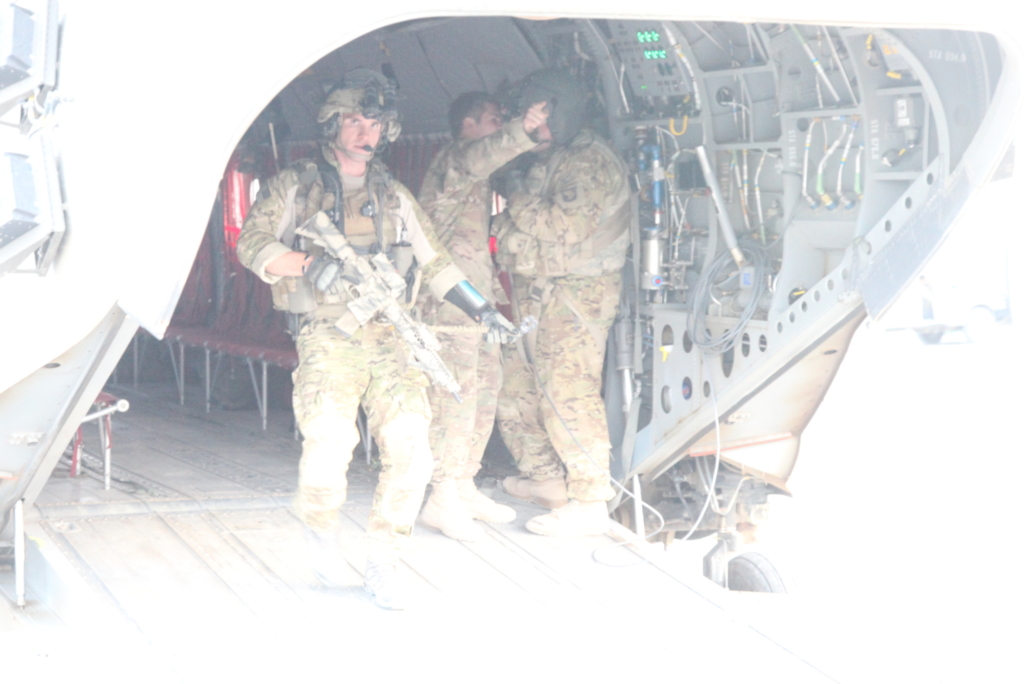
JD Dolan walks off a ramp following an operation in Afghanistan in 2012. (Courtesy photo)
JD Dolan, Columbia Business School, EMBA ‘15, NOLB board member
Dolan spent eight years as a light infantry officer and later as U.S. Special Operations Commander, receiving the Bronze Star for Valor. He is co-founder and partner of LDR Growth Partners.
Why is the mission of No One Left Behind important to you?
I think this is going to be the case for a lot of us: I was approached by an interpreter that I had for my first deployment years before. He approached me over the years about helping, and I didn’t do very much. I was engaged, I was in the First Ranger Battalion, I was deploying, I was busy. And I used that as an excuse. I recognized that it wasn’t going to be an easy thing to do.

JD Dolan
That was something I carried with me for a long time. I mean, I still carry it today. Fortunately, he was able to make it over and he’s safe with his family and doing really well. I felt like working with No One Left Behind was an opportunity for me to do something I wasn’t able to do or didn’t do at the time.
My interpreter from Afghanistan was killed in the Extortion 17 crash (the deadliest helicopter crash in U.S. special operations history), and I didn’t have the opportunity to help him. I was very close to him and his family, and he was actually on his way back to us and got plucked, because they were short one interpreter for the mission. When this opportunity presented itself to get involved with an organization that was doing the right thing and had been for a long time, it was about nine months before everything kicked off in the Afghanistan evacuation. It seemed like one of these moments that I should jump in.
We’ve done considerable reporting at Poets&Quants about the growing interest from MBAs or EMBAs to lead in ways that have positive impacts not only in their organizations but in the world around them. Was this a motivational factor for you in pursuing your EMBA?
Folks that I served with, we joke a lot and they say, “all of you MBA types are the same.” Obviously they’re saying it in jest, but there’s some truth to that. I think a lot of people that choose an MBA, choose it for a reason; They want something that’s innovative, they want something that they have control over, but they’re exploring. I think the relationship between these high purpose challenges, or opportunities depending on how you look at it, and pursuing an MBA is reciprocal.
We saw what happened in Afghanistan, certainly, as an acute challenge, but it reflects a much broader problem set that the organization was exploring long before I became involved. If you think about the right type of human being to attack that problem set, it’s natural to say that MBAs would be a great candidate pool to address that. I do think it’s really interesting, as we reflect on circumstances currently in the limelight, I think we’re seeing a lot of the same types of folks. In Ukraine, for example, we see a lot of former veterans, a lot of former special operators in particular, and a lot of former or current MBAs. I don’t think it’s a coincidence.
NEXT PAGE: Greg Fairbank, Harvard Business School, MBA ‘04, NOLB Board member





Questions about this article? Email us or leave a comment below.